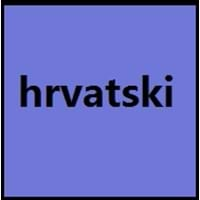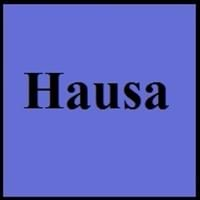Countries
Austria, Bosnia, Croatia, European Union, Herzegovina, Italy, Montenegro, Romania, Serbia
Nigeria
National Language
Austria
Gambia, Nigeria
Second Language
Not spoken in any of the countries
Nigeria
Speaking Continents
Europe
Africa
Minority Language
Austria, Hungary, Italy, Montenegro, Romania
Benin, Cameroon, Cote d'Ivoire, Ghana, Niger, Sudan, Togo
Regulated By
Institute of Croatian Language and Linguistics
Not Available
Interesting Facts
- In croatian language, everywhere there are words without vowels.
- Though croatian language was born in 9th century, the first written document in croatian was in 11th century.
- Hausa language is the most important and the best known of the Chadic branch.
- There are about one-fourth of Hausa words come from Arabic.
Similar To
Serbain and Bosnian
Not Available
Derived From
Church Slavonic
Not Available
Alphabets in
Croatian-Alphabets.jpg#200
Hausa-Alphabets.jpg#200
Writing Direction
Left-To-Right, Horizontal
Not Available
How Are You?
kako si
yaya dai
Good Night
laku noć
mai kyau dare
Good Evening
dobra večer
barka da yamma
Good Afternoon
dobar dan
barka da rana
Good Morning
dobro jutro
mai kyau safe
Sorry
Oprostite
yi hakuri
I Love You
Volim te
Ina son ku
Excuse Me
Ispričavam se
gafara dai
Dialect 1
Chakavian
Gaananci
Where They Speak
Croatia
Ghana
How Many People Speak
Not Available
Dialect 2
Chakavian
Kurhwayanci
Where They Speak
Croatia
Niger
Dialect 3
Shtokavian
Daragaram
Where They Speak
Bosnia and Herzegovina, Serbia, Croatia, Hungary, Romania
Niger
How Many People Speak
Not Available
Native Name
hrvatski
حَوْسَ (ḥawsa)
Alternative Names
Hrvatski
Abakwariga, Habe, Haoussa, Hausawa, Kado, Mgbakpa
French Name
croate
haoussa
German Name
Kroatisch
Haussa-Sprache
Pronunciation
[xř̩ʋaːtskiː]
Not Available
Ethnicity
Croats
Hausa–Fulani people
Language Family
Indo-European Family
Afro-Asiatic Family
Subgroup
Not Available
Chadic
Branch
Not Available
Not Available
Early Forms
No early forms
No early forms
Standard Forms
Pluricentric Standard Serbo-Croatian
Hausa
Signed Forms
Croatian Sign Language
Not Available
Scope
Individual
Individual
ISO 639 6
Not Available
Not Available
Glottocode
croa1245
haus1257
Linguasphere
part of 53-AAA-g
19-HAA-b
Language Type
Living
Living
Language Linguistic Typology
Not Available
Subject-Verb-Object
Language Morphological Typology
Fusional, Synthetic
Fusional
All Croatian and Hausa Dialects
Most languages have dialects where each dialect differ from other dialect with respect to grammar and vocabulary. Here you will get to know all Croatian and Hausa dialects. Various dialects of Croatian and Hausa language differ in their pronunciations and words. Dialects of Croatian are spoken in different Croatian Speaking Countries whereas Hausa Dialects are spoken in different Hausa speaking countries. Also the number of people speaking Croatian vs Hausa Dialects varies from few thousands to many millions. Some of the Croatian dialects include: Chakavian, Chakavian. Hausa dialects include: Gaananci , Kurhwayanci. Also learn about dialects in South American Languages and North American Languages.
Croatian and Hausa Speaking population
Croatian and Hausa speaking population is one of the factors based on which Croatian and Hausa languages can be compared. The total count of Croatian and Hausa Speaking population in percentage is also given. The percentage of people speaking Croatian language is 89.00 % whereas the percentage of people speaking Hausa language is 0.52 %. When we compare the speaking population of any two languages we get to know which of two languages is more popular. Find more details about how many people speak Croatian and Hausa on Croatian vs Hausa where you will get native speakers, speaking population in percentage and native names.
Croatian and Hausa Language Codes
Croatian and Hausa language codes are used in those applications where using language names are tedious. Croatian and Hausa Language Codes include all the international language codes, glottocodes and linguasphere.





